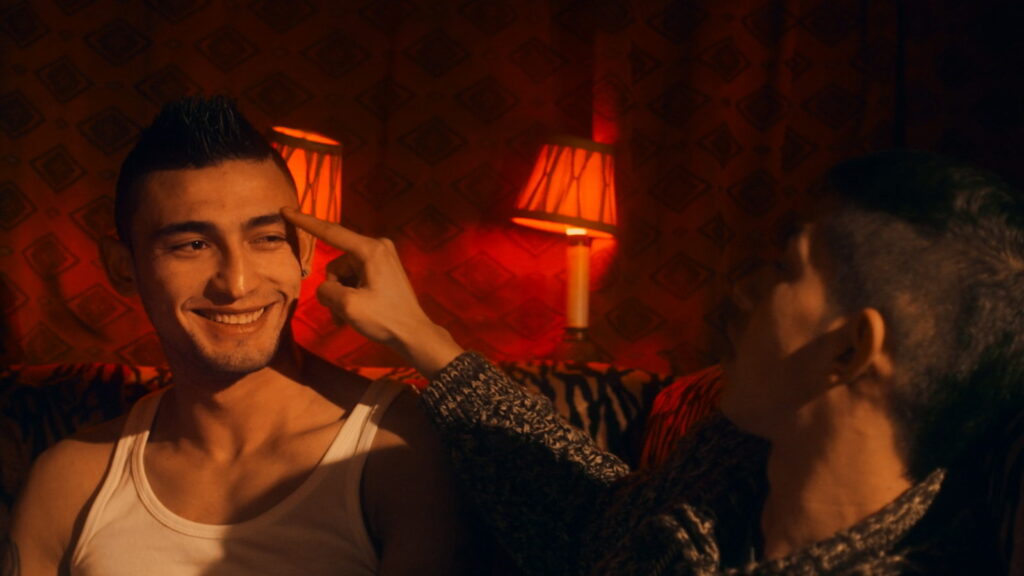Brothers of the Night concerns a loose network of young Bulgarian men who, unable to find work in Vienna, instead prowl the city streets selling their bodies. The opening scene of Patrice Chiha’s film locates two young hustlers in a shadowy concrete overpass, one sloshed out of his mind and the other trying to control him. This might sound like the typical start of a documentary realist portrait, but the scene’s febrile lighting and vaguely theatrical presentation immediately place Brothers more in the tradition of Rainer Werner Fassbinder’s highly stylized, 1982 queer touchstone, Querelle. Indeed, though the Lebanese-Hungarian director delves into the hustlers’ nocturnal existence with a level of detail that often borders on discomfiting, this film’s main draw is its evocation of a psychological space. There’s a smattering of frank interviews throughout the runtime, but mostly the film occupies a kind of dream state, revolving around a single location: the pick-up bar Café Rudiger, a location that functions, much like the brothel in Querelle, as the film’s locus of lubricious desire and transgression.
Delves into the hustlers’ nocturnal existence with a level of detail that often borders on discomfiting, but the film’s main draw is its evocation of a psychological space.
If Querelle remains a relevant work, this is in part because that film exposes the ways in which heterosexual norms have continued to operate within queer spaces. By virtue of Chiha’s chosen milieu, which deals mainly — but not exclusively — with straight men, who are just ‘gay-for-pay,’ Brothers of the Night continues in this tradition. The film’s young Roma men often have wives and children back in Bulgaria whom they must provide for, and the film doesn’t shy away from the conflicts — social, sexual, and otherwise — inherent in their predicament. Homosexual acts thus become linked to sexual taboo, cultural dislocation, and economic anxiety, but their presentation is far from the glib “transgression” one might expect. And if nothing else, Chiha establishes himself as an able imagemaker: Where his film’s rhythm is sometimes lacking, it makes up for it with strikingly layered compositions and evocative neon lighting. The closing scene — an extended sequence of disco lights and lusty dancing, alternately sped up and slowed down — doesn’t just create a microcosm of this social world, but also evokes a sense of temporal suspension. Then the music ends, and the intoxicating desire of the moment gives way to the uncertainty of what comes next.
You can currently stream Patrice Chiha’s Brothers of the Night on Mubi.


Comments are closed.